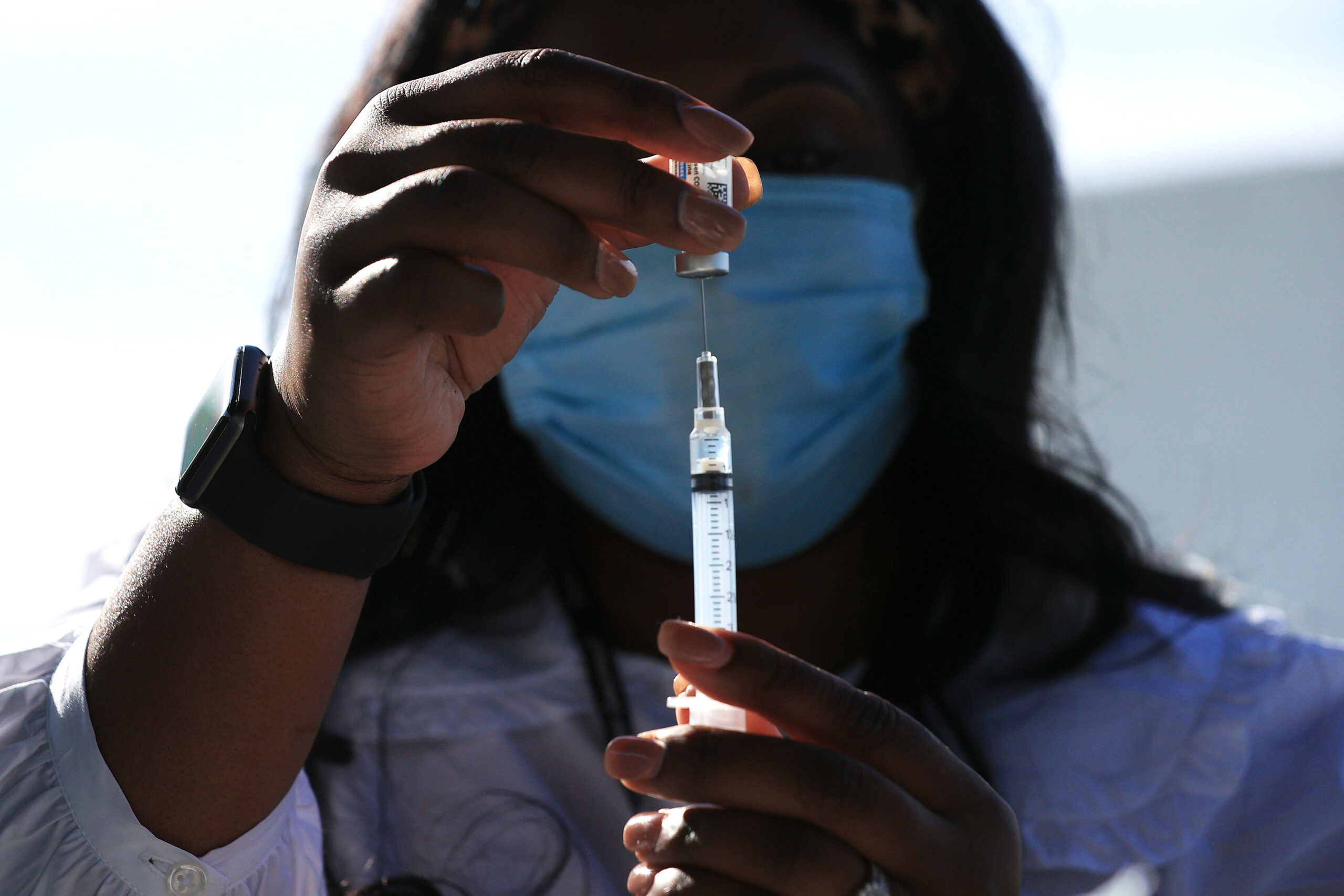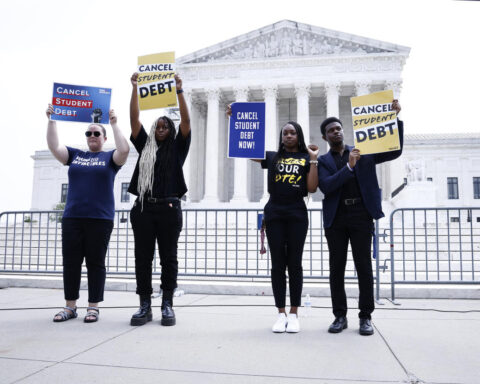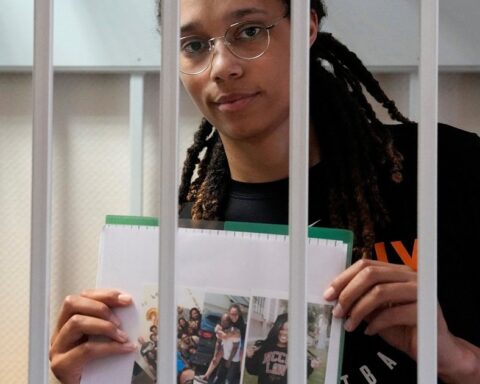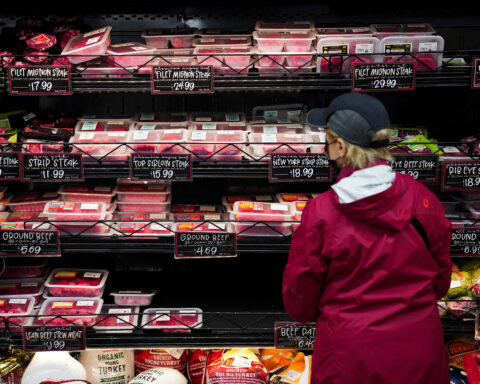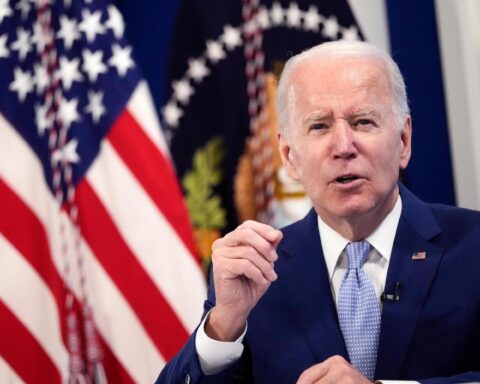The United States faces an uphill battle to meet President Joe Biden’s goal of vaccinating 70% of adults with at least one dose of Covid-19 vaccine by July 4, according to a CNN analysis. But the administration continues to push ahead with new programs and initiatives, and key players remain hopeful that the goal will be met.
Currently, 63% of adults in the US have received one dose of Covid-19 vaccine, and an average of about 371,000 adults were added to that total each day last week, according to data from the US Centers for Disease Control and Prevention.
But closer to 564,000 adults would need to initiate vaccination each day to reach Biden’s goal by July 4 — a rate that the US has only consistently fallen behind in the past week or so. The holiday weekend might have delayed some data reporting, but daily vaccinations had dipped below the required pace a few times before this week.
Another 18 million adults will need to receive at least one dose to reach 70%. At the current pace of vaccination, the US would hit about 68% of adults on July 4 — falling short by about 6 million adults. The full 70% would be reached about two weeks later.
Even so, 12 states have already met Biden’s goal: California, Connecticut, Hawaii, Massachusetts, Maryland, Maine, New Hampshire, New Jersey, New Mexico, Pennsylvania, Rhode Island and Vermont.
Eight others are on track to reach 70% of adults by July 4: Colorado, Delaware, Illinois, Minnesota, New York, Oregon, Virginia and Washington, as well as Washington, DC. But three states — Alabama, Louisiana and Mississippi — might not even vaccinate half of their adult residents with at least one dose by July 4 at their current pace.
On Wednesday, Biden announced a “National Month of Action” with various initiatives aimed at boosting vaccination rates in key communities, including free child care, extended hours at pharmacies and local outreach.
Dr. Anthony Fauci, CDC Director Dr. Rochelle Walensky and Surgeon General Dr. Vivek Murthy have all recently voiced their confidence in the ability to reach the July 4 goal.
“I think we absolutely can still hit that goal,” Murthy told CNN’s Jake Tapper on Wednesday, touting the administration’s new action plan and calling on Americans to talk to their family and friends.
“Now, because we’ve had so much success early on, we are now getting to the part of the campaign which is tougher. We’ve got to look further, if you will, convince more people, get them the right information, increase access even further,” Fauci said.
Overall, about 169 million people in the United States have received at least one dose of Covid-19 vaccine, and nearly 137 million people are fully vaccinated, according to CDC data. The CDC includes territories, such as Guam and the US Virgin Islands, in its national population calculations.
A poll from the Kaiser Family Foundation published last week suggests that most adults who were eager to get a Covid-19 vaccine have already done so, likely contributing to the slowing pace of vaccinations. But it’s possible to reach 70% coverage among adults, according to the survey. About 13% of adults said that they will “definitely not” get the vaccine and only 7% said they would only get it if required, leaving nearly 80% who said they have already gotten the vaccine, want to “as soon as possible” or will “wait and see.”
But some communities face more barriers than others. A recent CDC study found that rural counties have vaccinated a smaller share of residents than urban counties in the US on average. These rural counties tend to face barriers to health care access, such as less internet access and concerns about taking time off of work to be vaccinated, a challenge that the Biden administration hopes to dispel by looping employers into their efforts.
“Now what we’re seeing is a more steady, ongoing effort. It’s harder work reaching people who have more barriers to being vaccinated,” Dr. Richard Besser, president and chief executive officer of the Robert Wood Johnson Foundation, told CNN. “But I’m encouraged and optimistic that the interest will continue to be there.”
And children play an important role in reaching broader vaccination thresholds that will be key to minimizing the spread of Covid-19. Children ages 12 to 15 accounted for more than 1 in 5 new vaccinations reported in the past two weeks, according to the CDC. Just two weeks after becoming eligible, about 20% of that age group has already received their first dose of vaccine.
“The more people we can vaccinate, the more lives we’re going to save,” Dr. Sean O’Leary, a pediatric infectious disease specialist at Children’s Hospital Colorado, recently told CNN. “That includes children.”

